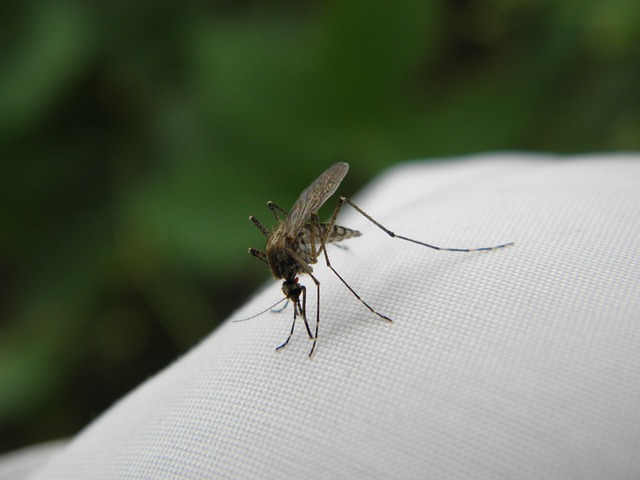Mosquitoes pose significant health risks by transmitting diseases like Zika, dengue fever, and malaria. They are active during dawn and dusk, attracted to scents, carbon dioxide, and body heat. Population control can be achieved by eliminating stagnant water sources and employing modern technologies like GPS, thermal imaging, biological controls, genetic engineering, and smart sensors for precise, eco-friendly mosquito pest control near me. Advanced localized solutions minimize environmental impact while ensuring healthier spaces free from mosquito-borne diseases.
Mosquitoes are not just a nuisance; they pose significant health risks, transmitting diseases like malaria, dengue, and Zika. As their populations surge in urban areas, traditional methods of mosquito control often fall short. This article explores advanced technologies transforming mosquito extermination, from understanding these insects’ behavior to emerging solutions that promise more effective and targeted pest control. If you’re searching for relief from these pesky invaders, “mosquito pest control near me” is a crucial first step.
Understanding Mosquitoes and Their Behavior
Mosquitoes are more than just a nuisance; they’re pests that can carry and transmit diseases like Zika, dengue fever, and malaria. Understanding their behavior is crucial in effective mosquito pest control near me. These insects are highly active during dawn and dusk, when they seek blood meals from hosts, including humans. They are attracted to certain scents, carbon dioxide, and body heat, making them particularly problematic in areas with dense vegetation or standing water—common breeding grounds for mosquitoes.
Knowledge of their life cycle is also vital for mosquito control. Female mosquitoes require water to breed, producing up to 100 eggs at a time. They lay these eggs in stagnant water bodies like buckets, tires, and puddles. By identifying and eliminating these breeding sites, mosquito pest control measures can significantly reduce their population. This includes proper waste management, draining standing water, and using larvicides in large water bodies.
Traditional Mosquito Control Methods
For centuries, humans have been battling mosquitoes, these persistent and often dangerous pests that can carry diseases like malaria, dengue fever, and Zika virus. Traditional mosquito control methods include manual efforts like swatting, using insecticides in spray form, or setting up nets around sleeping areas. However, these approaches are often ineffective due to the vast numbers of mosquitoes and their rapid adaptation to new environments. The need for more advanced technologies for mosquito extermination has never been more pressing, especially as mosquito-borne diseases continue to spread globally, highlighting the importance of effective mosquito pest control near me and worldwide.
Modern solutions must address the challenges posed by resilient mosquito populations and evolving climate patterns that create breeding grounds for these insects. Traditional methods often fail to eliminate mosquitoes at their source, leading to an ongoing battle with these pests. In response, innovative technologies are emerging, focusing on precise, targeted, and eco-friendly extermination methods. These advanced solutions aim to disrupt mosquito life cycles, repel them from specific areas, or even genetically alter them to reduce their population impact, providing much-needed relief for communities struggling with mosquito-related health issues.
Emerging Technologies for Effective Extermination
In the ongoing battle against mosquitoes, advanced technologies are emerging as powerful tools for effective and efficient mosquito pest control near me. One such innovation is the use of precision targeting systems that utilize GPS and thermal imaging to identify and eliminate mosquitoes in hard-to-reach areas, ensuring a more comprehensive approach to their extermination. These technologies not only reduce the reliance on chemical pesticides but also offer a safer, more eco-friendly alternative for both residential and commercial properties.
Additionally, innovative solutions like biological control methods, genetic engineering, and smart sensors are transforming mosquito management. Biological control involves introducing natural predators or parasites that target mosquito populations, while genetic engineering explores modifying mosquitoes to reduce their reproductive capacity. Smart sensors, on the other hand, can detect mosquito presence and transmit real-time data, enabling more proactive and targeted extermination strategies. These emerging technologies promise a future where mosquito pest control near me becomes more precise, sustainable, and effective.
Localized Solutions: Mosquito Pest Control Near Me
In today’s digital era, advanced technologies are reshaping the way we approach mosquito pest control near me. Localized solutions, powered by GPS and smart sensors, enable precise targeting of mosquito breeding grounds. These innovative tools can identify and eliminate specific habitats where mosquitoes proliferate, offering a more effective and environmentally friendly alternative to traditional methods.
By leveraging real-time data and advanced analytics, these localized systems provide tailored solutions for mosquito control in urban areas, suburban communities, and even rural regions. This targeted approach ensures that resources are used efficiently, minimizing the impact on non-target species and reducing environmental pollution. As a result, homeowners and local authorities can benefit from cleaner, healthier spaces free from mosquito-borne diseases.
Advanced technologies are transforming mosquito extermination, offering more effective and targeted solutions than traditional methods. By understanding mosquito behavior and leveraging innovations like GPS-guided treatments and biopesticides, we can significantly reduce mosquito populations. For those seeking immediate relief from these pests, exploring localized mosquito pest control near me services provides accessible, tailored solutions. Combining these modern approaches with community efforts ensures a more sustainable future free from the nuisance and health risks associated with mosquitoes.
